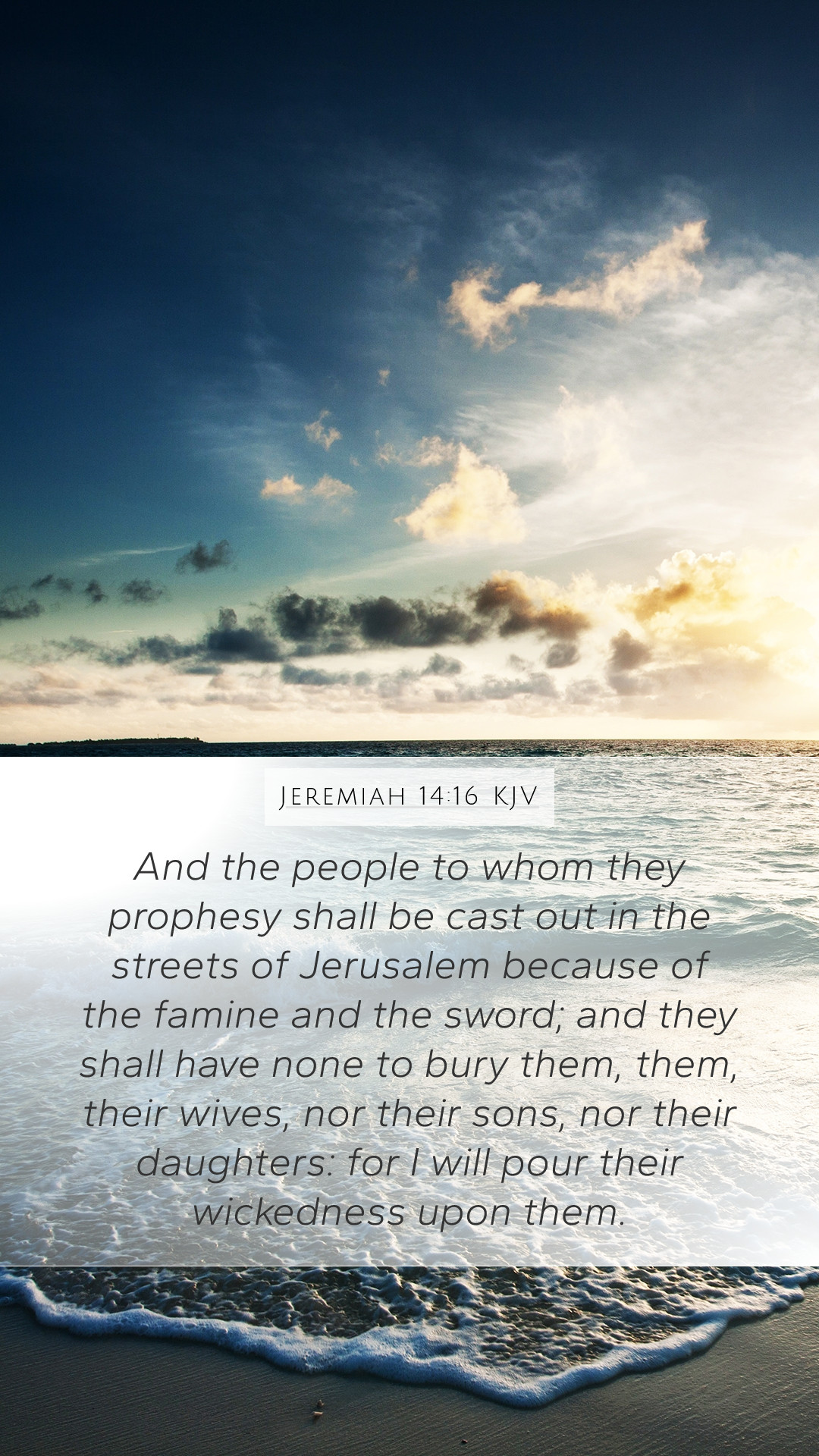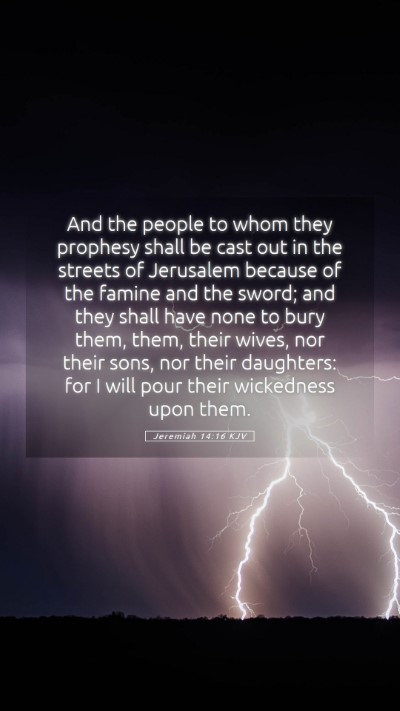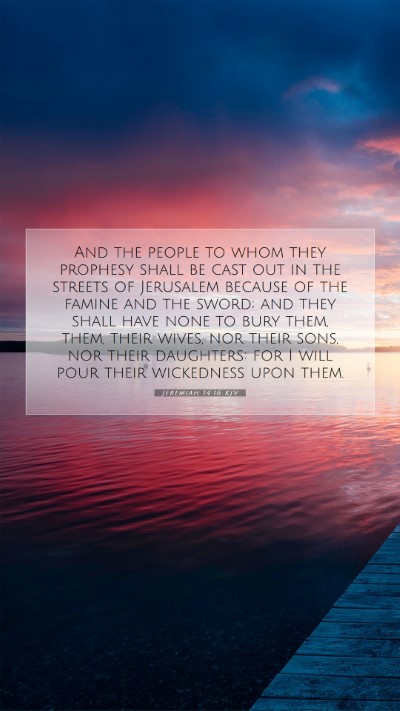Understanding Jeremiah 14:16
Jeremiah 14:16 states: "And the people to whom they prophesy shall be cast out in the streets of Jerusalem, because of the famine and the sword; and they shall have none to bury them, their wives, nor their sons, nor their daughters: for I will pour their wickedness upon them." This verse holds profound implications for understanding God’s judgment and prophetic warnings within the context of ancient Israel.
Bible Verse Meaning
This passage reflects the deep consequences of disobedience to God, illustrating how false prophecies lead people away from divine truth. Through this verse, we observe:
- Judgment Against Sin: God’s displeasure results in societal devastation where the consequences of famine and warfare leave no one to mourn the dead.
- Failure of False Prophets: The prophets mentioned here misrepresent God’s intentions, leading people astray. Thus, they face dire repercussions.
- The Weight of Wickedness: The phrase "I will pour their wickedness upon them" indicates that personal accountability for sin cannot be neglected.
Bible Verse Interpretations
From various public domain commentaries:
- Matthew Henry: He emphasizes the lethality of false hopes offered by prophets. Their predictions not only fail to deliver but also expose the people to impending doom.
- Albert Barnes: He discusses the historical context of Jeremiah's warnings. The lack of mourning implies a complete socio-religious breakdown—an indication of God’s ultimate judgment on Israel for their congregational apostasy.
- Adam Clarke: Clarke remarks on the severity of the social impact of sin as demonstrated in this prophetic statement. The absence of funerals signifies God lifting His protection, leaving the people vulnerable to chaos.
Biblical Exegesis and Contextual Analysis
To truly grasp the meaning of Jeremiah 14:16, we must consider:
- Historical Context: Positioned during a time of national crisis in Judah, this verse offers insight into the societal implications of disobedience to God.
- Prophetic Role: Jeremiah stands as a true prophet among many false ones, strongly positioned against the tide of popular yet misleading religious sentiments.
- Theological Implications: This text ultimately portrays a God who is just—His patience has limits, and when society as a whole indulges in moral decay, judgment ensues.
Application of Jeremiah 14:16
The application of this verse today can serve numerous purposes for believers and those studying scripture:
- Self-Reflection: Individuals can reflect on personal conduct, questioning which influences they allow to guide their understanding of righteousness.
- Community Responsibility: It encourages communal accountability towards maintaining integrity and spiritual truth.
- Awareness of False Teachings: In an era of information overload, discernment is crucial against misleading doctrines that may promise ease but lead to chaos.
Additional Cross References
For a deeper understanding of Jeremiah 14:16, consider these related verses:
- Deuteronomy 28:15: Discusses the curses that result from disobedience to God.
- Lamentations 4:9: Highlights the harsh realities faced by those who suffer from the consequences of sin.
- Matthew 23:37-38: Jesus laments over Jerusalem, indicating a recurring theme of divine judgment due to unrepentant hearts.
Conclusion
In summary, Jeremiah 14:16 serves as a stark warning about the perils of false prophecies and the resultant divine judgment. It encourages believers to seek the truth of God’s word actively and to engage seriously with scripture to navigate their faith. Bible verse meanings, interpretations, and explanations of such passages can enhance one's understanding of God’s character and His expectations for humanity.
Through Bible study insights, groups and individuals can explore the complexities of scripture with tools and resources aimed at fostering a deeper biblical literacy and commitment to truth.


